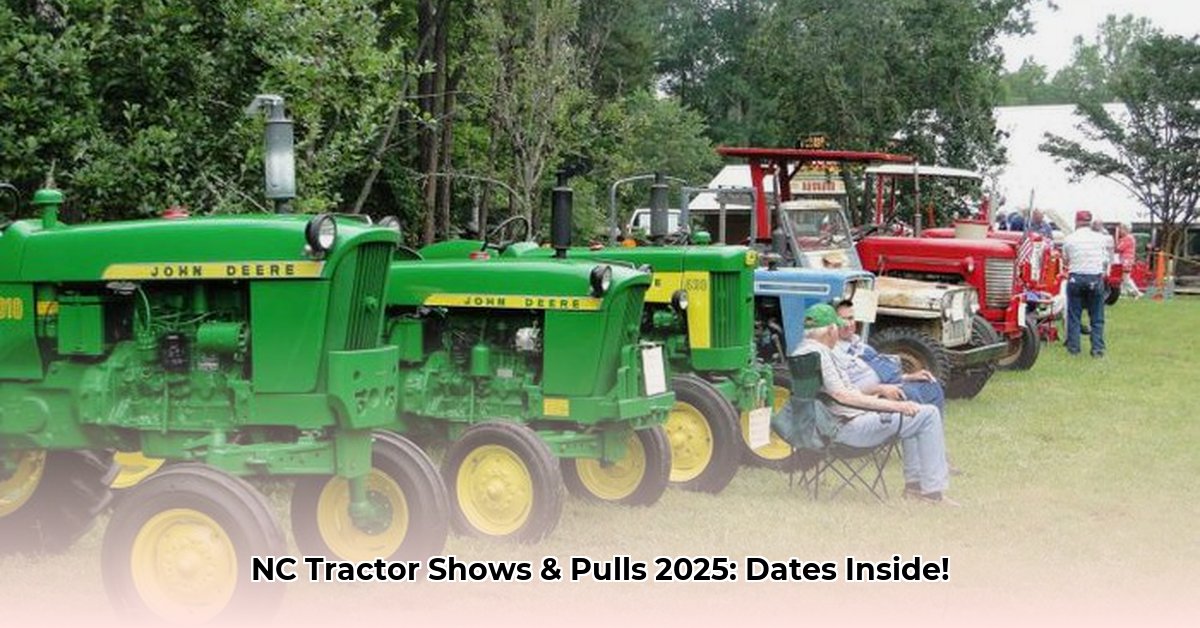
NC Tractor Shows: A Vibrant Tradition Facing Modern Challenges
North Carolina's antique tractor shows are more than just displays of historic machinery; they're vibrant community events, economic drivers, and living testaments to the state's agricultural heritage. These shows attract thousands annually, boosting local economies and fostering a strong sense of community. However, the increasing popularity of these events also presents significant challenges, particularly regarding sustainability and marketing. This article explores the current landscape of NC tractor shows, identifies key challenges and opportunities, and offers practical steps toward a more sustainable and successful future for this beloved tradition. Are you ready to discover how we can keep these engines running smoothly, both literally and figuratively? For more information on NC tractor pulls, check out this helpful resource.
The Current Landscape of NC Tractor Shows
The NC tractor show scene is a diverse tapestry woven from numerous individual events. Some are intimate gatherings, resembling family reunions centered around shared passion for antique tractors. Others are large-scale spectacles, drawing attendees from across the Southeast. These events showcase a variety of formats, including thrilling tractor pulls, family-friendly activities, and displays showcasing specific tractor brands or eras. The participant demographics are equally varied, encompassing seasoned collectors and curious families alike. This rich diversity presents both opportunities and challenges. Do these fragmented events miss out on the potential for even greater success?
Challenges and Opportunities: A Path Towards Growth
A significant challenge facing many NC tractor shows is marketing and promotion. Many operate independently, limiting their reach and hindering their potential for growth. This fragmented approach also prevents the creation of a stronger, unified brand for NC tractor shows as a whole. Furthermore, the environmental impact of these events, particularly concerning fuel consumption and waste generation, needs careful consideration. However, these challenges also pave the way for exciting opportunities. What if a coordinated marketing campaign showcased the entire state's rich tapestry of tractor shows, drawing substantially larger crowds?
Sustainability in Action: Creating Greener Shows
Integrating sustainable practices into antique tractor shows is not only environmentally responsible but also strategically smart. It strengthens the events' appeal to a broader audience, including environmentally conscious attendees and sponsors. The path to a greener future involves several key steps:
- Robust Waste Management: Implementing comprehensive recycling and composting programs, clearly marked bins, and partnerships with local waste management companies. Such initiatives can significantly reduce landfill waste.
- Fuel Efficiency and Alternatives: While preserving authenticity is paramount, strategically promoting fuel-efficient transportation for attendees and showcasing alternative fuel options or electric vehicles for demonstrations (when appropriate) can significantly reduce the carbon footprint.
- Sustainable Sourcing: Encouraging vendors to utilize eco-friendly materials and packaging, as well as promoting local and sustainably sourced food at concession stands.
- Educational Initiatives: Including workshops and displays that educate attendees about sustainable farming practices and eco-conscious choices enhance the educational value of the events.
A Call to Action: Collaboration for a Sustainable Future
The future of NC tractor shows depends on collaborative efforts involving all stakeholders. Organizers can benefit from implementing clear reporting systems, exploring joint marketing campaigns, developing central online platforms, and creating partnerships with other organizations. Local governments can play a critical role offering financial incentives for sustainable practices, incorporating these events into tourism strategies, and developing sustainable event infrastructure. Attendees can make conscious choices, such as carpooling and reducing waste, while sponsors can embrace environmentally responsible initiatives.
Conclusion: Thriving Traditions, Sustainable Practices
NC tractor shows are vital community events, preserving agricultural heritage while providing significant economic benefits. By embracing a collaborative and sustainable approach, these cherished traditions can flourish for generations to come, blending appreciation for the past with responsibility for the future. Let's ensure these events continue to thrive while minimizing their environmental impact.